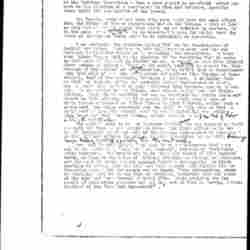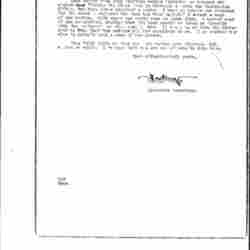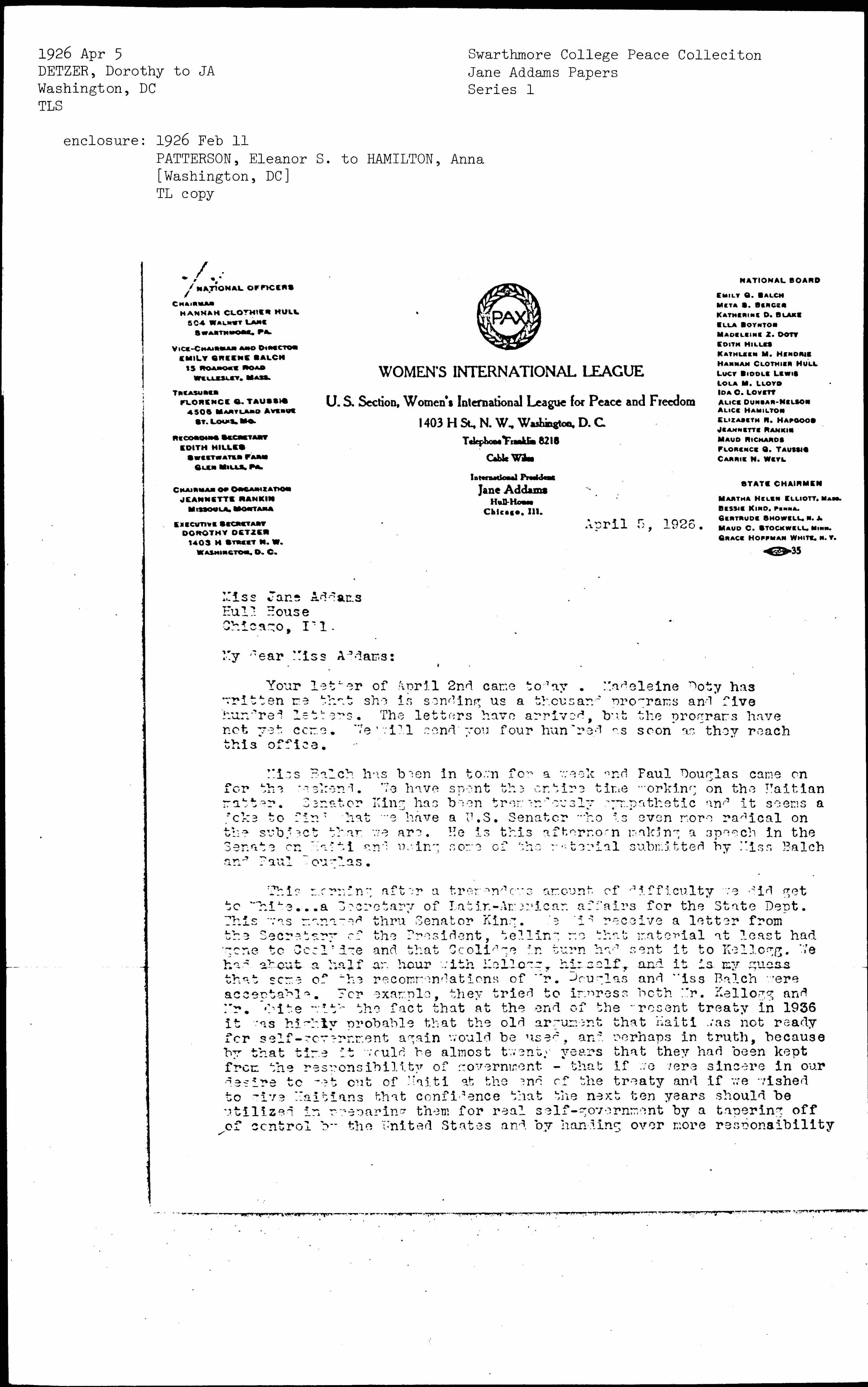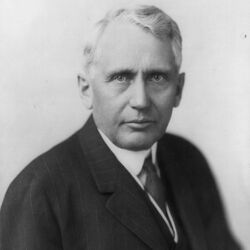My dear Miss Addams:
Your letter of April 2nd came today. Madeleine Doty has written me that she is sending us a thousand programs and five hundred letters. The letters have arrived, but the programs have not yet come. We will send you four hundred as soon as they reach this office.
Miss Balch has been in town for a week and Paul Douglas came on for the weekend. We have spent the entire time working on the Haitian matter. Senator King has been tremendously sympathetic and it seems a joke to find that we have a U.S. Senator who is even more radical on the subject than we are. He is this afternoon making a speech in the Senate on Haiti and using some of the material submitted by Miss Balch and Paul Douglas.
This morning after a tremendous amount of difficulty we did get to White… a Secretary of Latin-America affairs for the State Dept. This was managed [through] Senator King. We did receive a letter from the Secretary of the President, telling me that material at least had gone to Coolidge and that Coolidge in turn had sent it to Kellogg. We had about a half an hour with Kellogg, himself, and it is my guess that some of the recommendations of Mr. Douglas and Miss Balch were acceptable. For example, they tried to impress both Mr. Kellogg and Mr. White with the fact that at the end of the present treaty in 1936 it was highly probable that the old argument that Haiti was not ready for self-government again would be used, and perhaps in truth, because by that time it would be almost twenty years that they had been kept from the responsibility of government -- that if we were sincere in our desire to get out of Haiti at the end of the treaty and if we wished to give Haitians that confidence that the next ten years should be utilized in preparing them for real self-government by a tapering off of control by the United States and by handing over more responsibility [page 2] to the Haitians themselves -- that a plan should be carefully worked out such as the election of a parliament in 1928 and definite, specific steps until the termination of the treaty.
Mr. Douglas pointed out that this plan would have the same effect that the fixing of German reparations had on the Germans -- that as long as they had no stated amount that there was no initiative to produce. So in the same [illegible] [illegible] ↑as long as↓ there was no opportunity seen for taking back the reins of government there would be no initiative to cooperate.
I am enclosing the American Legion Bill on the Conscription of Capital and Labor. Hearings on this bill come up next week and our National Legislative Committee is organizing the opposition. We hope that Wilbur Thomas will be the chairman of the committee [though] it seems as [though] most of the work is falling on me. A few of us here have planned three points of action -- first to get solid, rich ↑business↓ men to oppose it. This because of the make-up of the ↑senate↓ committee, which is all that is reactionary with Wadsworth of New York as Chairman and members like Bingham of Connecticut, Reed of Pennsylvania, Robinson of Indiana. I am hoping that we will get Clement Biddle and probably Alfred Scattergood to speak, but we would like to have as many telegrams from business men as we can get. We are hoping to get Filene, some others in New York and Philadelphia. Would it be possible for you to ascertain how Julius Rosenwald stands on this subject, and if opposed, if he could send a wire or night letter addressed to Wilbur Thomas at 1403 H Street, making such a statement? Any other prominent men who would do this also so that we could read it into the record would be very helpful. (We are writing John Dewey and David Starr Jordan, asking them to do so.) ↑The Fed. of Labor is taking the [appointments].↓
The second point is to get American Legion ↑men↓, who are opposed to their own bill and that we are working up here. Our third effort is to try to get prominent people in each of the states, represented by Senators on the Military Affairs Committee, to make opposition to the bill. ↑Hearings begin Friday April 9th & probably [through] the next week.↓
You will be interested, I am sure in an advertisement that came out in the April 3rd, “Army and Navy Journal,” advertising “patriotic prize contest.” The prizes are to be given for essays of five hundred words, or less on the value of Military Training in Schools and Colleges, and the most effective remedy against ‘Pacifist propaganda.’ In black headings it states that the Army and Navy Journal will furnish the information upon which the essays may be based, “This information, which is startling will be in the form of articles, beginning with the issue of the Army and Navy Journal of April 17th. These articles are the result of exhaustive research and are the work of Fred R. Marvin, editor-in-chief of the “New York Commercial.”
Your letter from Anna Hamilton rather disturbed me because she stated that “during the first week in February I wrote the Washington Office, but have never received a reply. I know my letter was received for the check I enclosed for dues has been cashed.” I attach a copy of our carbon, which shows our reply sent on March 11th. A marked copy of our newsletter, stating that the tour should be taken up directly with the wayfarers was also sent to her. It seems to me that the letter sent to Mrs. Hamilton answers all her questions to us. I am sending her also in today’s post a copy of our letter.
Miss Balch tells me that you were having some distress with a knee or ankle. I do hope that you are out of pain by this time.































Comments